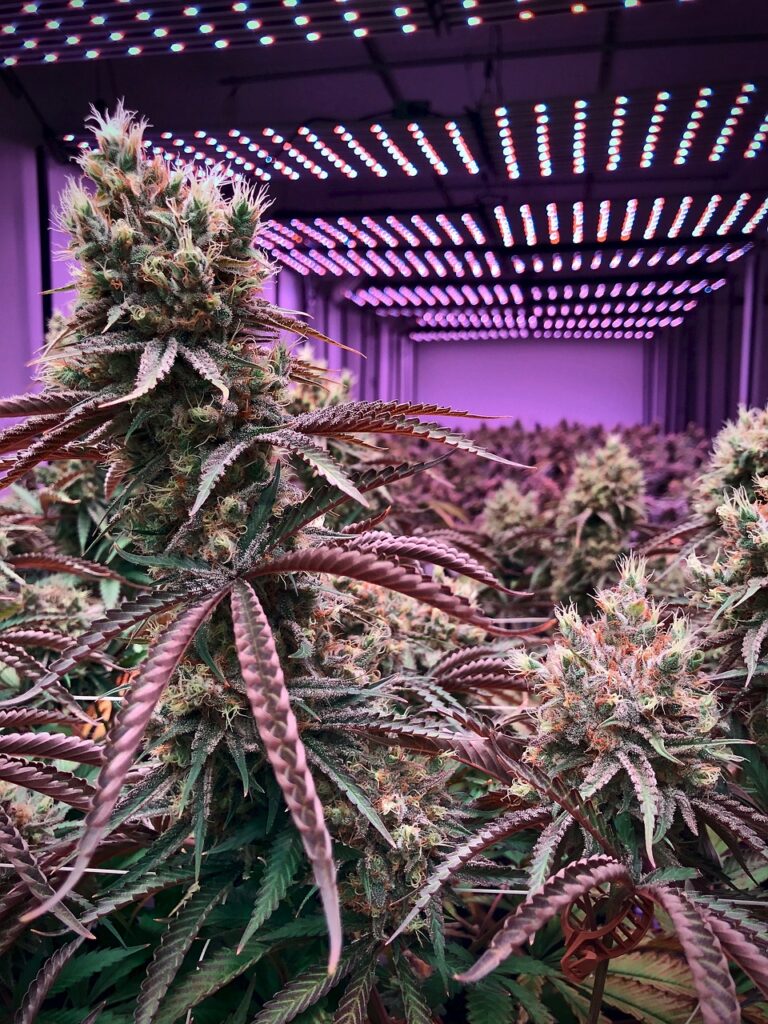Despite the legalization and regulation of marijuana in California, significant issues remain regarding the safety of cannabis products. A comprehensive investigation by The Times and the cannabis-focused newsletter, WeedWeek, reveals troubling gaps in the regulatory system, leading to contaminated products being available to consumers.
In their investigation, The Times and WeedWeek purchased various cannabis items from licensed retailers and had them analyzed in independent laboratories. The findings were alarming: out of 42 products tested, 25 contained pesticide levels exceeding either the state’s permitted limits or the federal standards for tobacco.
“The detected contaminants include substances associated with cancer, liver damage, thyroid diseases, and risks to both users and unborn children,” reported Paige St. John from The Times and Alex Halperin from WeedWeek in an exclusive piece for subscribers. “Most of these pesticides were found in low concentrations that could pose a long-term health risk with repeated use, although the full extent of these risks might not be understood for many years.” More concerningly, vapes from five prominent brands contained pesticide levels that surpassed the federal safety thresholds for harm based on a single exposure, as defined by the Environmental Protection Agency.
California’s regulations require testing for 66 specific pesticides, but this list has not been updated in nearly six years. Many other harmful chemicals, which are known to cause issues such as liver cancer and reproductive disorders, are not currently included in the state’s testing requirements.
A significant part of the problem is the regulatory gaps that leave much of the industry’s oversight to labs financially dependent on the companies they serve. “Legislation aimed at mandating independent checks for fraud and accuracy has been stalled in Sacramento for two years due to behind-the-scenes negotiations between industry stakeholders and regulators,” St. John and Halperin explained.
State regulators, particularly from the California Department of Cannabis Control, have been notably reticent on the issue. Despite ongoing calls to expand testing to include more pesticides, the department has yet to propose any new regulations. Nicole Elliott, the department’s director, has refrained from commenting on the severity of the pesticide issue. However, some department employees, speaking anonymously, have criticized the agency’s reluctance to address pesticide contamination assertively. “One employee mentioned that they were advised to avoid actions that might ‘disrupt the market,'” the report notes.
The cannabis market in California is vast and lucrative, which unfortunately incentivizes practices like the use of harmful pesticides to accelerate production. This drive for profit, paired with inadequate regulatory oversight, results in products that potentially jeopardize consumer health.
Adding to the complexity is the lack of comprehensive research on the health impacts of cannabis, largely due to the federal government’s classification of marijuana as a dangerous drug, akin to heroin and LSD. This classification severely restricts scientific studies. However, this might change as the U.S. Department of Justice recently proposed reclassifying marijuana, potentially paving the way for more extensive research.
The current state of the cannabis industry also adversely affects small-scale growers. Mary Gaterud, a long-time cultivator in Humboldt County, shared her frustrations with St. John and Halperin. “Those who comply with regulations and strive to operate correctly are often squeezed out,” she said. “Meanwhile, those who cut corners are rewarded, and consumers end up being misled about the safety of their purchases.”
This investigation underscores the urgent need for stricter enforcement and updated regulations to ensure the safety of cannabis products in California.
“How Dirty Is Your Weed? A Joint Investigation Finds High Levels of Pesticides in Products.” Www.Latimes.Com, 18 Jun. 2024, www.latimes.com/california/newsletter/2024-06-17/cannabis-investigation-la-times-weedweek-toxic-pot-essential-california. Accessed 18 Jun. 2024.

